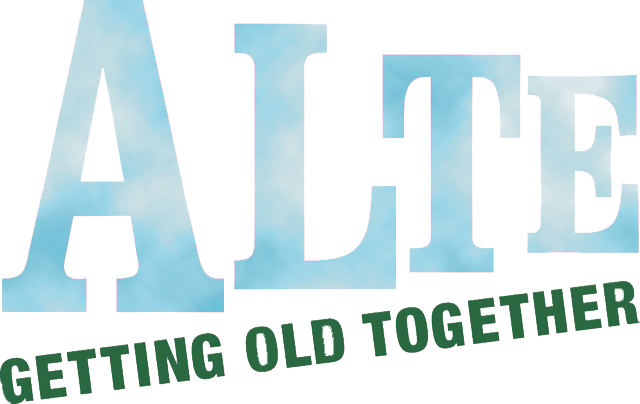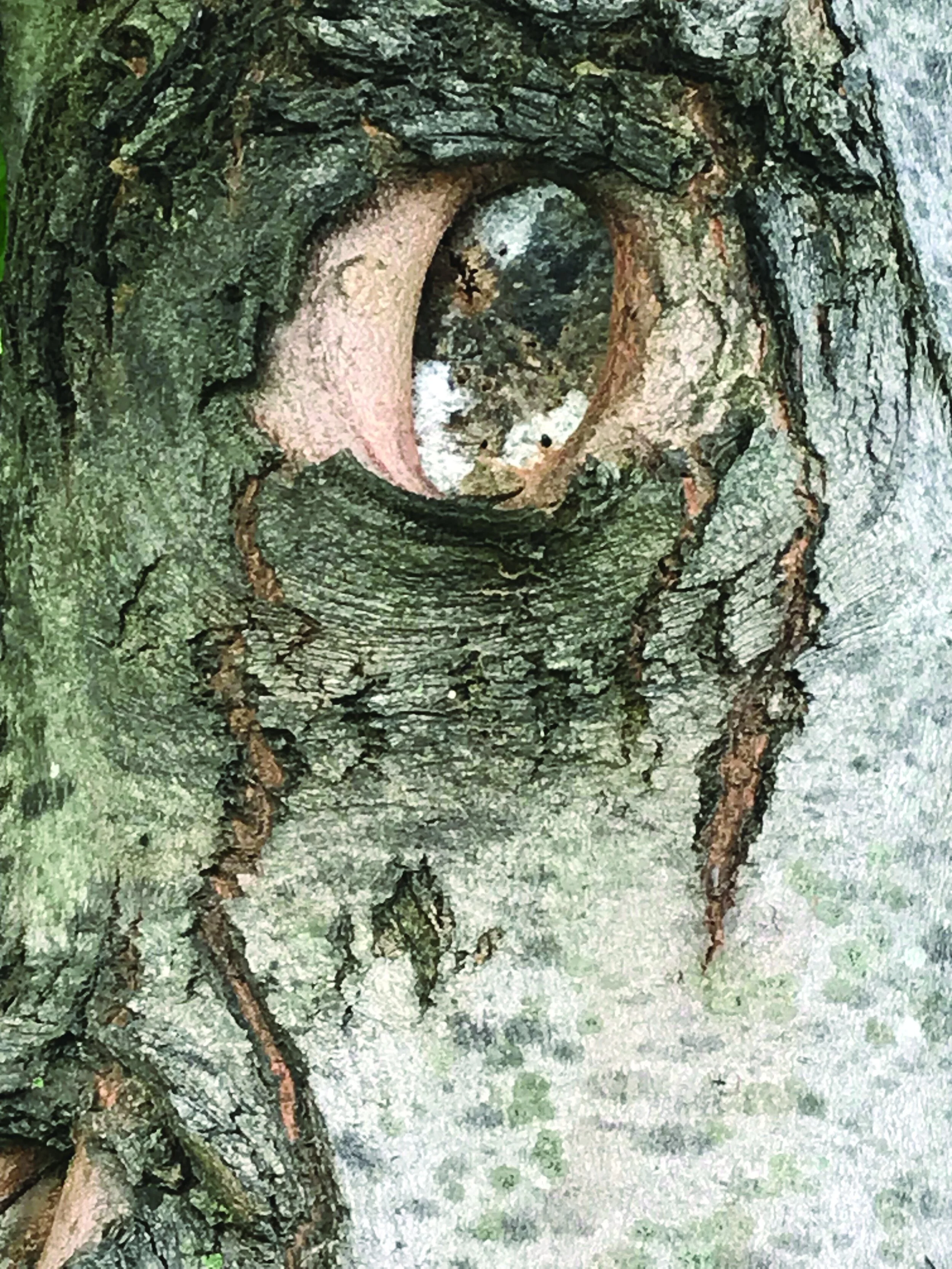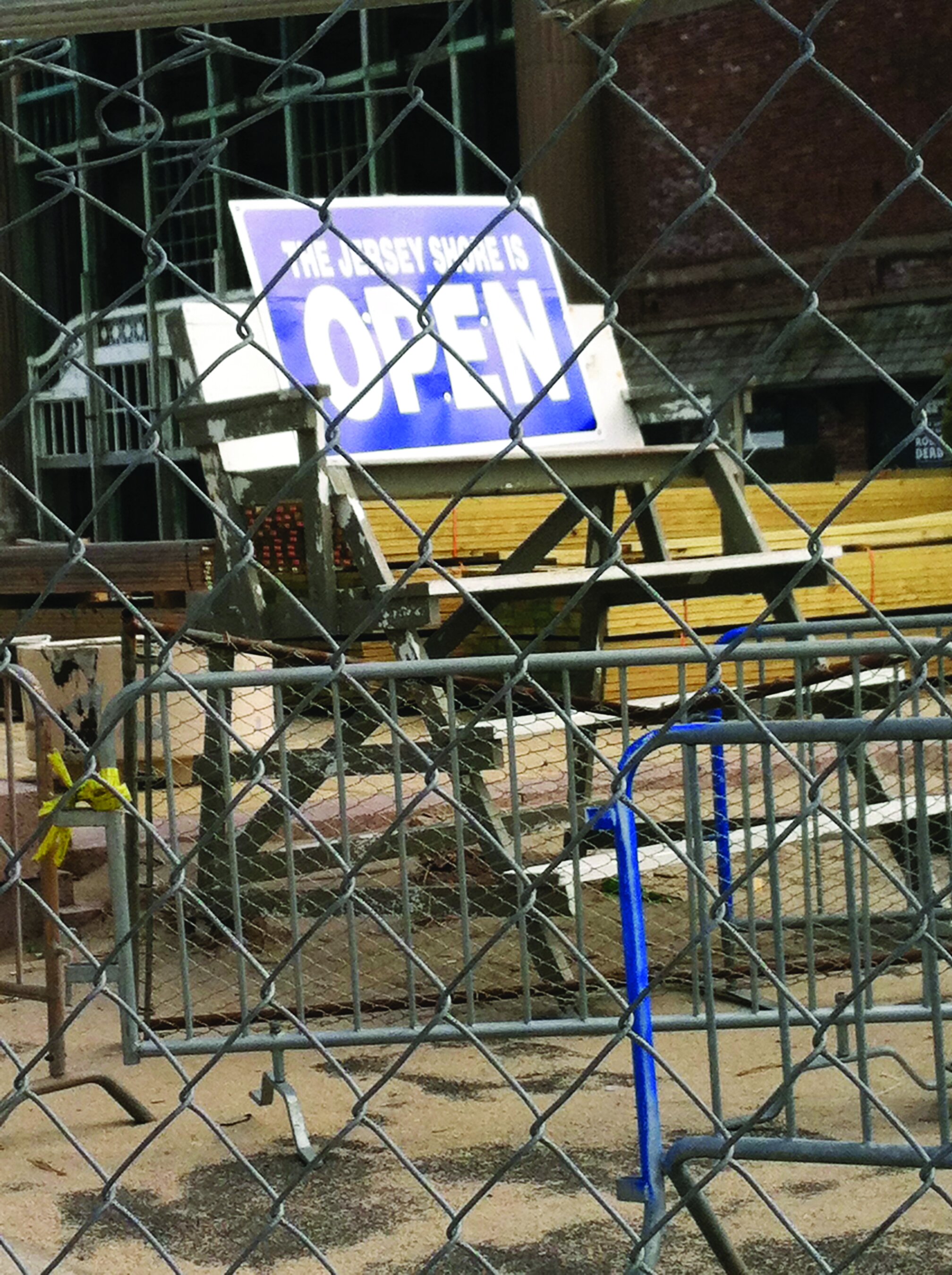Alte #9: The Future
Dana Jacobs
Love Song to the Kind Ones
by Marilyn Kallet
This is a love song to the
Sister of Mercy who sat with me
for hours in the waiting room at Mercy,
while my sister was being born.
She opened Life Magazine to a full-page
spread of Nabisco cookies,
and we waited together, while I
drooled. Where was Dad?
I was three. No one asked me
my religion. Nu?
Cookies and Sister kept me
calm. This is a love song
to that patient, robed Sister,
& to my baby sis.
Not so little
now, she keeps me company
in her poems, in our epic
calls. I send her peaches
for her June birthday.
This is a love song to kindness,
to moments when sweet ones
lend a hand. A love song
to the next generation, the
tiniest ones,
jelly beans with heartbeats.
This is my hopeful song to
to the new,
let’s-be-more-human
beings.
Long Shot
by Anna Wrobel
(for the children)
a grey winter sky
its sad drops crying
all day ‘til roofs leaked and lights went dark
on every street
the bruising ice
a bony layer set against the earth’s speaking
what will happen to the salamander?
you laugh and i can’t see why
there were days these were my friends
and now they are forsaken
can we live small as children? is there time?
is there space? will the princes of gold
just lose their bets
and go away?
my bookie’s not giving great odds
i thought to hang up the dice to gamble no more
but grey skies are weeping
i always played the long shots and it is no time for safer bets
Lawrence Bush
Seasonal Affect Disorder
by David Keller
It was a long, cold winter, or so it seemed.
But slowly, bits of the new plants started up
in the garden and the lawn out front:
green shoots, promising
happiness, I guess you’d call it,
since it was either windy, or cold,
maybe both in the same afternoon.
I found myself looking out the window
for signs. And then there were signs
the buds on the Japanese maple
begin filling out, dividing into buds,
doubling and finally, into little reddish propellers
we use to call helicopters as kids.
A couple of days later, the green
flowers started; tiny buttons embroidered
on the branches, and I began to feel hope
that the world had given up on its pandemic,
I took a deep breath, and one more,
quietly, into myself. More birds came, flowers, Bradford pears.
I was held by a storm of green, the tree
slowly giving up their barrenness
and their leaves all different greens.
But today, driving past my neighbor’s driveway,
the pavement was covered with thousands of leaves
that I recognize as bougainvillea,
storms of their dead petals, wings of the gulls
fallen out of the sky. The entire neighborhood looked
like a firework display in greens and more greens. I was jolted
from my Christmas dreams. Why did I expect
to live forever.
Future
by Barry S. Savits
I stagger blindly
through crowded streets
vibrating with Honky Tonk sounds,
including the grinding gears
of on-terrain motors.
Tinsel follows me wherever
I go.
I feel lost in the maelstrom of new inventions,
use of which escapes my capacity
to comprehend and use accordingly.
I am held ransom
by pixelated protagonists
who propose a whole new world order,
which unravels as a dehumanizing ambience
that reproduces by parthenogenesis.
Its mainframe and motherless apps
consume the minds of even the sentients,
sucking dry all human emotions.
It seems to dwell less on the essentials
and more on the absurd attractions
to fill the spaces
between dawn and dusk.
Its philosophy seriously detracts
from the formation of interpersonal relationships.
Machines are gaining dominance
in one-way marriages.
The hunger for their possession is growing —
to slake the thirst for what?
Is it only that I do not understand them
and cannot grasp their role?
Is my answer
to retreat and retire, to await a scary ending
watching the long arms of Earth’s clock
succumbing to the dubious judgment
of cold metal, screws, and wires?
Marc Shanker
City Sonnet IX
by Mikhail Horowitz
After vines enwrap the hundredth storey
And floods recede from fifty flights of stairs;
After human hopes and dreams miscarry,
The city once again is wholly theirs—
They who dwell forever in its shadows,
Under its foundations, in hidden cracks:
Roaches in their dark, hermetic burrows,
Ownerless dogs and feral cats in packs—
Fleas will star in their expanded circus,
Ants advance in armies through empty stores;
Buzzing flies enswarm the city’s carcass,
Monstrous reptiles navigate the sewers . . .
And rat, so long reviled, will flaunt the crown
Long after Brooklyn Bridge has fallen down.
Laurie Ludmer
but what’s that to me?
by Bill Davis
I am old and
Death is approaching fast
But what’s that to me?
The Gita declares,
“Just as worn out cloths are discarded,
And we don new clothing,
So worn out bodies are discarded
And we don new bodies.”
Yes, this body will soon die
But what’s that to me?
I have a body,
But I am not the body.
It’s like a rental car
And must be returned to Avis
(says Bill Davis).
We need a car
To drive to God.
As long as we drive in some other direction,
We’ll be issued a new car again and again
Until we get it right.
Says Sri Ramakrishna:
“What joy is there in sex life?
There’s a billion times more joy in loving God.”
Wise Solomon concurs, as does
Jesus and the Sufi masters.
The Buddha calls it Nirvana.
Three Mornings in November
by Eloise Bruce
The first good night’s sleep in forever,
the election finally over and
the morning is seasonably warm,
the woods are the color of garnets
and monarch butterflies. A flutter
of something sweet and bright
is on the morning air. The dog
has finished his breakfast and runs in wild circles
with his little Lama Dolly in his mouth.
We are settled on the sofa now.
He sleeps while I write a love letter
to the future. I gaze out the window
at glimmering leaves, mirror and talisman.
*
This morning I watch the cardinals
outside the bedroom window,
in a holly that is their home.
Out the other window
the last rose blooms.
In the tree, other birds interlope,
catbirds, mockingbirds, wrens,
the tree is alive in the flits of feathers,
sparrows, finches, blue jays and
occasionally mourning doves
More often than not
there are troubles. The leaves shake
and there are flashes of red and
blue, brown and gray. Sometimes
a few sit peacefully inches apart.
How like the larger world, this tree.
*
Red punctuates the cold morning air,
bright rubies falling from the Japanese maple
while fat squirrels feast on holly berries.
This is how we wait for the inauguration,
In our warm skin, my husband, our dog and me,
in our red room under our red blanket,
blood pulsing, red and warm.
Four Questions
by Bob Rosenbloom
When I got up to recite the Four Questions
at our Passover Seders— always held at
my mother’s aunt’s house,
she had the larger dining room.
I was the youngest, the baby,
so I pounced on it, it was my job
and I took the bull by the horns, executing
perfectly. I had a decent ten year old’s voice then.
Was this night really different?
Why matzoh, not bread?
What’s with the bitter herbs?
Why did my brothers, flanking me
to the right and left have to pinch my ass
as I read, making me stop? And my father
would tell them to knock it off,
all not more than twelve years out from
the end of World War II and the liberation
of the camps and the Dodgers leaving Brooklyn.
Why always a sweet kind of sadness and aroma
drifting across the room, from oven to dining room table,
a parakeet named Dukie, after the Dodger centerfielder,
and a photo of FDR above where my mother sat,
my mother’s family having perished in the camps.
Lately, I’ve started to think they were gunned down,
which is how it looks on the troop movement maps
in Holocaust Museums for their region of Romania.
Who could tell then my older brothers
would become today’s professionals,
for isn’t the past prologue?
Who could predict I’d forgive them their past trespasses?
Who could foretell a future so full of light?
Doug Eisman
Future
by Esther Cohen
When I moved into my apartment (I still live there now) in the mid-seventies, decades ago, I did not think of the word ‘future,’ even for a minute. My roommate was Emily Sterling, a friend from college who had every intention of becoming an actress. She was more than beautiful, and had the southern charm of southern charm. She acted in our living room with Lindsey Crouse who, for a while anyway, was married to David Mamet. I thought only about the present then: the book I was writing, called Mango Tango, a language tango if you can imagine that, my job as an office temp, various liasons, politics, live music, demonstrations. I never thought about what life might be nearly 50 years later, never thought much about families and pandemics and security or careers or body parts. I knew I’d write a book one day, or two or three or four. But more than that who could say? Not me.
Practicing
by Marilyn Kallet
You think because he’s practicing goodbye he won’t leave. Maybe it’s a story and the ending is just made of words. When you press, he mentions working on revisions. If he leaves, you’ll repaint the empty halls and doorframes. Put his nuts and bolts in storage. Call Good Will. Call the Industrial Blind. You’ll rope your car around the dead bush he’s attached to and yank it out. You’ll feel emptier than Hades after Orpheus and Eurydice checked out. “Go with him!” Vivian says. “He’s a good-looking man and some woman will latch onto him.” His life is revision. Yours may get whited out. Get a jump on the empyrean, grab a taste of the void. Vive Verlaine! Start drinking absinthe. Start now.
Three Poems
by Jessica de Koninck
Twinkle, Twinkle
Soon there will be no fireworks along
the Jersey shore from Sandy Hook to Cape May
on the 4th of July or to celebrate the end
of summer, or so the papers say. Pyrotechnic displays
will be replaced by fake fireflies, and we will save
money. Instead of Roman candles, swarms of drones
will dischrage flashes of light. I will regret
the silence, the absence of smoke and sparks
and the way a loose ember once burned a small hole
in my sleeve. No need to shoot cardboard rockets
over water for safety. The dogs will not bark.
The children will not shriek. No barriers.
No fireboats to put out stray flames. You won’t
need to hold me close during each explosion.
Concerning My Future
My friend, S., worries about my soul.
I’m touched he cares. His faith demands
him to believe when I die I will head
straight to Hell. He trusts if I do not
come to Jesus I will fry.
We met at work, exasperated by the fetters
of bureaucracy when our job
is supposed to help children. I’m S’s
only Jew, and he’s my only Baptist. We share
a passion and belief in public education.
Last Sunday I went to hear his wife sing.
The church service moved me,
full of fire, though the sermon went on,
and the hosannas from the pews made me squirm.
I loved the choir, loved the ladies in their hats.
He is curious to learn about my family
and my faith and far too polite to lecture
about fate. He asks about Sabbath
observance and rules for keeping kosher.
I invite them to join us for Passover seder.
When we have these conversations, I wonder if,
like me, he doubts whether what he has been taught
can possibly be true. But his concern seems
so sincere. A conundrum for him. What to do
to save his friend, the Old Testament Jew.
Evolution
all morning I practiced not thinking
about you and watched a black
butterfly hover near goldenrod
watched a small brook at the turn
where water pools
before flowing downstream
little creatures cavorted
minnows tadpoles insects
barely visible to the eye
long ago in puddles like this
life moved from water to land
not emerging from swelling oceans
but swimming where water slowed
took a curve and began to dry up
when drought came a few survived
learned to extract oxygen from air
learned there are other ways to breathe
Jessica de Koninck
How She Knew She Was Seventy
by Elena Harap
It was the knuckles that did it:
every time she made a fist, they rose up
shiny as the end of a chicken bone picked clean:
sleek white knuckles,
tissue-fine skin around them
pleating to delicate diagonals, left and right
across the veined back of the hand.
She opened her hand. The chicken-bone knuckles
disappeared as she understood a new politics:
not to be taken lightly, this opening and closing.
Once fluid, the hand now found its fingers on strike,
frozen, calling a stop.
bargaining with the rest of the body,
“Give us benefits, lighter loads, warmup time,
then we’ll go back to work.”
One hand opened the other, promising
better conditions, arbitration, exercise breaks.
She knew it, too, because in bed she felt
some crazy looseness: who cares? what if?
Libido, they say, is one of the last sensual losses
(no how-to instructions––she’s on her own);
and because sometimes, settling for sleep,
she sensed the planet going around
and around, like a dog making itself
comfortable for the night.
Lawrence Bush
Thoughts about the Future
By Helen Engelhardt
When I hear the word “Future,” I see that colossal sculpture 75 feet high in stainless and chrome-nickel steel of the man and woman — he holding a hammer aloft, she a sickle — entitled “Worker and Kolkhoz Woman,” created by Vera Mukhina for the Soviet Pavilion at the 1937 International Exposition in Paris dedicated to Art and Technology in Modern Life. Follow us into the future as we build the Glorious Union of Soviet Socialist Republics!
When I hear the word “Future,” I see those two monumental symbols of the New York World’s Fair — The Perisphere and The Trylon. The Fair was the first International Exposition, with the slogan, “Dawn of a New Day,” and the theme, “the world of tomorrow.” There was one problem: This advertisement for the glorious future opened April 30, 1939.
When I hear the word “Future,” I see the iconic sculpture by
Umberto Boccioni, “Unique Forms of Continuity in Space,” 1913. Thirty years after Nietzsche described his “super-man,” Boccioni sculpted a future-man in cast bronze. The face is abstracted into a cross, suggesting a helmet, an appropriate reference for the war-hungry Futurists. Boccioni and many other Italian artists enthusiastically embraced Filippo Marinetti’s “Manifeste de Futurisme,” published in 1909. The Futurists glorified speed, violence and the working classes, and worked across a wide range of art forms. Marinetti celebrated World War I as an act of Futurism, and in 1918 he founded the Futurist Political Party, which was strongly patriotic, supportive of violence, and opposed to parliamentary democracy. It merged with the Italian Fascist Party, and in 1922, when Mussolini came to power, Futurism was officially accepted by the Fascists.
When I hear the word “Future,” I immediately hear echoes of that infamous remark misattributed to Heinrich Himmler, Joseph Goebbels or Hermann Goering. The statement, “When I hear the word culture, I reach for my gun,” was in fact an altered version of a line in “Schlageter,” a play written by Hans Johst, a member of the officially approved writers’ organization in the Third Reich. When the Nazis achieved power in 1933, Johst wrote “Schlageter,” about a proto-Nazi martyr, to be performed on Hitler’s 44th birthday, April 20, 1933. The actual line in the play: “When I hear ‘Culture’... I release the safety catch on my Browning!”
I leave the “Future,” to the fanatics. Give me this tsarte khokh-ma, this tender Yiddish wisdom from Chaim Zhitlovsky:
Shoyn avek der nekhtn Yesterday is gone
Nokh nito der morgn, tomorrow isn’t here yet,
S’iz nor do dos bisele haynt, there’s only this little bit of now
Oy, shtert es nit mit zorgn. Don’t ruin it with worries.
Isaac Abrams








